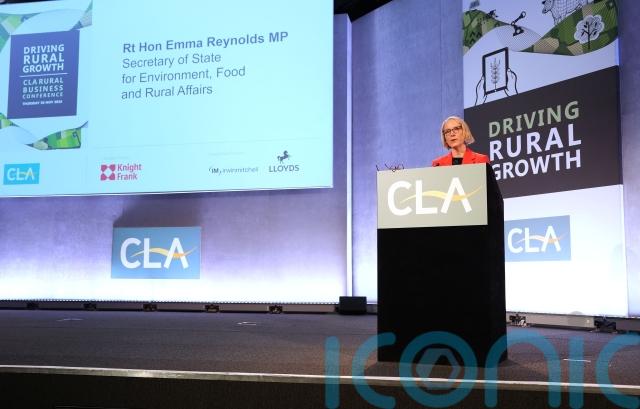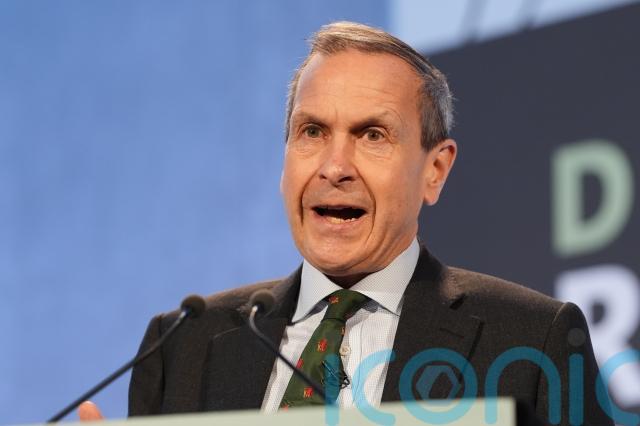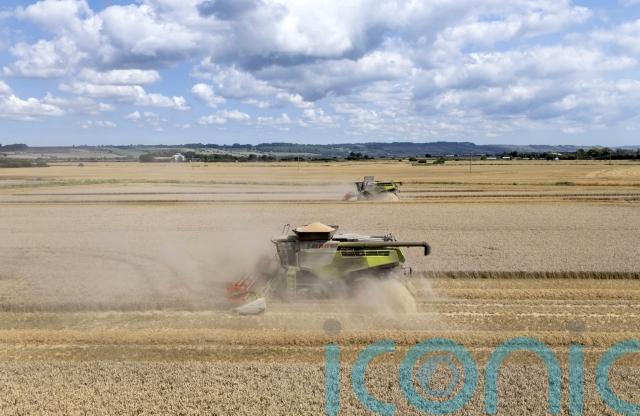
Emma Reynolds was told that rural communities feel forgotten about after she addressed landowners and farmers about her vision for the countryside.
Speaking at the Country Land and Business Association (CLA) conference in Westminster on Thursday, the Environment Secretary sought to highlight work the Government is doing to drive growth in the rural economy after taking on the role in September.
Ms Reynolds also announced some new policies, including a “rural taskforce” publishing 50 actions to support rural businesses early next year, measures to make it easier to build reservoirs on farms and plans for a rural and wildlife crime strategy.
“This Government sees the rural economy as absolutely fundamental to our growth mission,” she said.
“When rural economies succeed, the whole country succeeds.”

But her speech was overshadowed by new CLA president Gavin Lane’s attack on Labour’s rural economic policies, especially inheritance tax changes for agricultural properties and businesses.
Chancellor Rachel Reeves’ plans to introduce a 20% rate on assets worth more than £1 million have become a political flashpoint for an industry struggling with rising costs, tough market conditions and worsening climate impacts.
During a Q&A session, Mr Lane told the Environment Secretary that the rural economy faces a lack of investment, certainty for planning and higher unemployment, while many people in the countryside feel forgotten about or not listened to by the Government.
“Well I’m sorry if that’s the way you feel,” she said, adding that environment ministers “really appreciate your engagement” and that she is “optimistic about the future”.
“Of course we’ll have difficult discussions about things we don’t agree on always but we want to set out that positive vision with you together and in partnership.”
Rural sectors continue to campaign against the inheritance tax changes, due to come into effect in April 2026, arguing that cash-poor farmers will be forced to sell their land, investment will stall, and the families of elderly or vulnerable farmers who do not have time for succession planning will be the worst affected.
Asked about reports last month that the policy could be softened at the upcoming Budget next week, Mr Lane told reporters: “Everything we’ve been told has been that the door is shut now and that there’s going to be no movement.”

During his speech, he argued that Labour had shown “short-sightedness” in the idea that inter-generational family businesses are part of the problem of wealth inequality.
“The Treasury has decided, as you know, that agricultural property relief and business property relief are loopholes being exploited by wealthy individuals to avoid tax,” he told the audience.
“They insist that the vast majority of family businesses will be fine.
“But here’s what I believe is happening. Whether through ideology, inexperience or perhaps a fundamentalist misunderstanding of how family businesses work, this Government is treating inter-generational asset transfer as a problem to be solved rather than the foundation of sustainable long-term investment.”
Mr Lane said that he was unsure why the changes have been pursued with “such vigour” or why there has been such little time for consultation.
But he added: “You can’t ask people to pay to plant an orchard they’ll never see grow, then tell them their kids aren’t allowed to pick the fruit.”
During her speech, the Environment Secretary said she “listened carefully” to the CLA president’s comments.
But rather than expanding on the inheritance tax debate, she sought to “focus on the future”, outlining how the Environment Department (Defra) plans to work alongside rural businesses as well as across Government to address the challenges it faces.
Ms Reynolds spoke about an upcoming review into farming profitability, developing a 25-year farming road map, a land use framework, the environmental improvement plan and the redesigned sustainable farming incentive (SFI) subsidy scheme – all due to be unveiled in the coming months.

“Let me be clear about what we’re building together, a rural economy that thrives with sustainable, profitable farm businesses that can plan for the long term,” she said.
Later pressed by Mr Lane about the inheritance tax changes, she said: “I understand that there are huge concerns about (agricultural property relief) and (business property relief) and (inheritance tax) overall, and that isn’t something that came to me on September 5 when I was appointed.
“It is something that farmers in my constituency have been in touch with me about.
“But I want to, as I said in my speech, to focus on the future,” she said.
“Those are the things I am committed to and I hope that will help build the confidence that you talk about.”
Subscribe or register today to discover more from DonegalLive.ie
Buy the e-paper of the Donegal Democrat, Donegal People's Press, Donegal Post and Inish Times here for instant access to Donegal's premier news titles.
Keep up with the latest news from Donegal with our daily newsletter featuring the most important stories of the day delivered to your inbox every evening at 5pm.